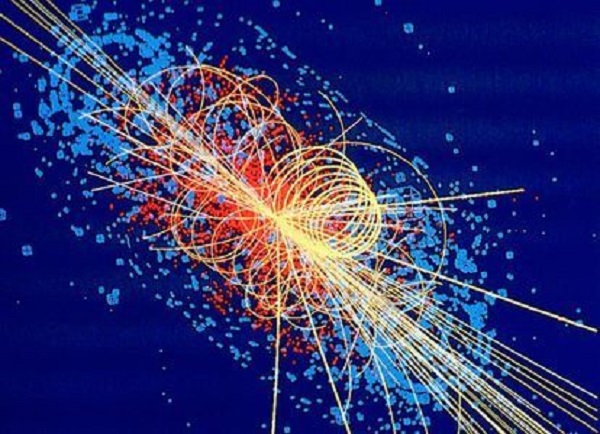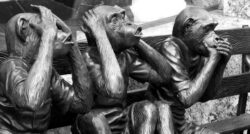Ever wonder why so many people are so sick with so many different chronic and debilitating conditions? I do. In fact, I think about it all the time. Much of the last several years have been spent interacting with individuals who are ill, sometimes desperately ill. For these individuals, modern medicine has failed and failed miserably. Indeed, many have been cast out of traditional medicine altogether, their illnesses deemed too complex to solve. For all its technical sophistication, modern medicine falls decidedly short when it comes to the complexity of functional illness. The disease processes that can emerge from a myriad of different variables, evoke complex and cascading metabolic reactions and require more than a magic pill, device or exquisitely executed surgery, flummox even the most capable physicians. It is easier to label those diseases psychogenic or psychosomatic and those patients as difficult – you know crazy.
What if these patients aren’t crazy? Or what if those behaviors colloquially deemed crazy, are really just the tip of the illness iceberg? What if the seemingly unrelated, often unusual symptoms, even those that evoke symptoms of crazy – of psychosis, of unremitting and misplaced anxiety, of soul searing sadness and depression – what if those are simply symptoms of a greater illness? Absent trauma, psychiatric symptoms don’t simply emerge from nowhere. Are we missing something when we dissociate emotional, cognitive and other ‘psychological’ symptoms from the totality of what are perceived to be the organic diseases? You know the ones that we can see with our own eyes (aided by high tech imaging or microscopy, but seen nevertheless), or feel with our hands, or smell, or in some other manner, sensibly perceive – diseases that are real and material in nature.
While modern medicine has done wonders with acute and emergent care and is brilliant in its capacity to design and implement increasingly sophisticated technological innovations, it falls short in the face of the complexities of functional, non-linear, apparently non-material systems. The systems at the nexus of un-massed matter operating within a fluid and infinitely changeable medium that appear beyond our calculative perceptions and defy the hard and fast material compartments into which we so want them to fall. In medicine, we have yet to recognize that there are few simple and separately controllable cause/effect relationships. We have yet to realize that there are no silver bullets, no magic pills or surgical procedures able to stop a multi-layered feedforward cascade; especially since no one is looking.
Blame It on Ayn Rand
And no one is looking, not because we are limited by intellectual capacity – the Higgs Boson, for example, reminds us of what is possible intellectually when we appreciate the mystery of things. No, we are not limited by intellectual capacity, but by a pervading lack of interest. Medical science (and politics and economics) have been wrapped up for decades, it seems, in some warped notion of a physics-defying magical universe of Ayn Randian extremes where man is separate unto himself; where he is both totally in control of all things that matter (and of matter itself) and his pursuits are completely disconnected from any ill-effects his actions evoke.
Ayn Rand? Really, Chandler, you’re bringing in Ayn Rand? Yep. I cannot help but thinking that our ridiculously compartmentalized approach to modern medicine, the one that fails to recognize the connection between systems, that believes ever so strongly in its ability not only to perceive and know correctly the totality of human health and disease but to manipulate and control it without repercussions, without consequence, is an offshoot of Ayn Randian epistemology. You know, the one that suggests man is an end unto himself, that his happiness is his moral goal (the rest of us be damned) and that his reason is reality (no matter the evidence to the contrary). Yes, that Ayn Rand. Her notion of man’s undying and incontrovertible heroism paired the inviolate rightness of his reason pervades modern medicine; the hubris, the compartmentalization, and the seeming blindness to its own actions are cornerstone. What a wonderful position to hold in the universe, mini man-gods, always certain and always right. Certitude of reason paired with inculcate selfishness all but eliminates the possibility of any reality beyond what it already known and accepted.
Such a perspective would have pretty much squelched most of modern physics, including the search for the Higgs Boson, better known as the God (damn) particle (yes, that was the original moniker). Imagine medical science searching for something so esoteric and so beyond the linear, predictable, and visible equations we have now; something akin to the Higgs Boson (un-massed matter moving within some universal but changeable medium – a medium that dictates force and follows our calculations only if we can identify the mass of the item and the medium within which it operates – which we cannot). Human physiology is no less complex, but nevertheless, in our current Randian state of self-serving hubris, the complexity of human health is all but unimaginable. We have supplanted medical science with some warped construct of sciencism, bolstered by the safety of Randian hubris. And while morally endowed certainty feeds our egos, it does little to forward understanding or relieve suffering.
What if Medical Science Was More like Physics?
What if the pursuits of medical science were more like those of physics where complexity is embraced? Consider the concept explored by those searching for the Higgs Boson – of unmassed matter. That is mind-blowing. A notion upon which so many equations and assumptions about reality rest but one that is yet unproven. Contemplate “mass is constructed entirely from the energy of interactions involving naturally massless elementary particles…“. In both its literal and mathematical calculation we have an impossible dilemma of knowing something before it is known; of a ‘decision-point’ among an infinitude of decisions that determines a trajectory. I imagine it as trying to identify a “universal but changeable medium (the soup of life)” – a medium that dictates force and follows our calculations only if we can identify the precise mass of the item (at the precise time of measurement, remembering of course that measurement itself changes trajectories and that the medium determines the mass) and in the ‘real’ (not the experimentally contrived) medium within which it operates. Sit with that for a moment. The medium within which we exist is infinitely variable and that variability influences the output and vice versa. That goes well beyond any of current methods of medical experimentation (which, for all intents and purposes, are based upon basic crop science). In fact, infinite variability is the antithesis of medical science, especially the current inviolate rightness of the pharmaceutical model of medicine, where magic pills influence only their intended targets with nary a side effect or unintended reaction.
What would happen if we were to appreciate this level of complexity in modern medical perception? What would happen if we were to address health and disease, not in nice little physiological compartments, but as one connected process that involves functional and metabolic adaptations at every level? What if gut health or disease impacted brain health? What if your ovaries were connected to your thyroid? Or your testicles to your brain? (Oh wait, that connection has already been discovered.) What if we recognized the possibility that each system could talk, respond, and adapt to changes in other systems? And that each of those adaptations engendered ever-so-slightly different trajectories? Is it possible that we are one, completely integrated organism and not simply a collection of compartmentalized organs? Oh, the blasphemy.
It seems too fantastical to be true; a human organism that contains within it a myriad of interleaving parts, with feedback and feed forward systems, adapting and changing functionally to ever-dynamic internal and external signals. At the very least, it contradicts generations of medical specialization, decades of codeable and billable efficiencies, and every human impetus to name, categorize and separate disease. Perhaps more importantly, a notion of a connected universe defies the Randian moral imperative of selfishness.
While it is entertaining to consider that each of us is an island unto ourselves and that our happiness is a moral imperative, it just doesn’t fit the reality of existence without a fair degree of cognitive dissonance. Alas, my friends, despite our efforts to the contrary, the human organism does not exist in bubble and neither do the component parts that make us human exist in isolation. We can no more dissociate our genetic history from our ancestral and current environments than our current health epidemics from the toxic cocktail most of us call food. Everything is connected to everything else. Every action evokes a reaction (and those actions change the very nature of possible and probable and are likewise affected by the constantly changing medium within which they develop). No, matter how much we would like calories to magically disappear or the lifetime of bad health choices to evaporate, the reality of organismal physiology includes a physics of connectivity and a long, long memory. If medicine is to progress beyond the Randian magical thinking of separateness, it must move towards a more complex physics; one where actions not only have reactions (we don’t seem to consider even the most basic physics with medication reactions), but where our questions match the complexity of the Higgs Boson, and thus, the complexity of organismal interactivity.
We Need Your Help
More people than ever are reading Hormones Matter, a testament to the need for independent voices in health and medicine. We are not funded and accept limited advertising. Unlike many health sites, we don’t force you to purchase a subscription. We believe health information should be open to all. If you read Hormones Matter, like it, please help support it. Contribute now.
Yes, I would like to support Hormones Matter.
Image credit: CERN.
This article was published originally on Hormones Matter on December 9, 2015.









